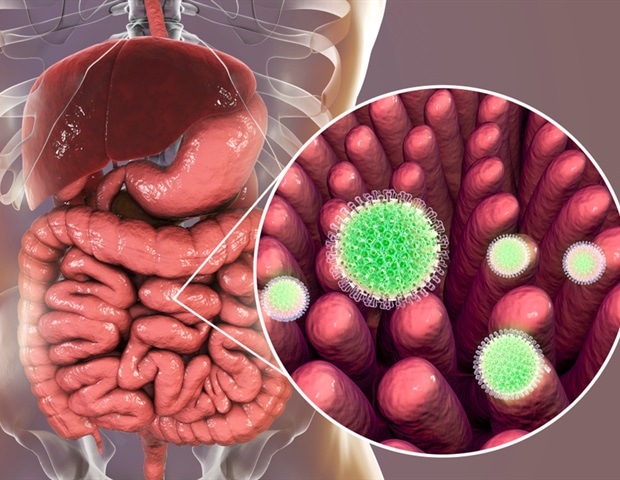
Researchers from Kids’s Hospital of Philadelphia (CHOP) discovered that transmission of rotavirus vaccine strains in a neonatal intensive care unit (NICU) is uncommon and with out scientific penalties, strongly suggesting that giving the rotavirus vaccine to eligible infants throughout their hospitalization offers immune advantages that outweigh any dangers. The findings, printed immediately within the journal Pediatrics, may function the premise for a change in scientific observe.
Rotavirus is a virus that infects the liner of the intestines and is often characterised by signs equivalent to excessive fever, persistent and extreme vomiting and diarrhea. Earlier than rotavirus vaccines had been out there, most youngsters had been contaminated earlier than age 5, and the virus contributed to roughly half 1,000,000 baby deaths worldwide, and tens of 1000’s of hospitalizations of younger kids within the U.S., every year. Rotavirus stays the commonest reason for diarrhea in infants and younger kids.
The primary dose of a rotavirus vaccine is often given to newborns at two months previous. Traditionally, many NICUs don’t give rotavirus vaccines to inpatients on account of a theoretical danger of horizontal transmission of vaccine strains, which means that the strains of the virus within the vaccine may doubtlessly infect at-risk sufferers, since some vaccinated infants shed stay, attenuated vaccine-strain rotavirus of their stool for weeks after administration. Holding vaccination till sufferers are discharged from the NICU usually leaves infants with lengthy hospitalizations, who’re most weak to extreme rotavirus illness on account of underlying well being circumstances, doubtlessly making them ineligible to ever obtain the vaccine. Prior retrospective research discovered very minimal danger of horizontal transmission in NICU settings.
As an infectious illness physician who has labored on An infection Management in NICUs for a few years, I used to be struck by how not often vaccine virus was transmitted and the way it didn’t trigger scientific signs. Our research, performed in a big NICU with each multi-bed open pods and personal rooms, provides to present proof suggesting that danger of transmission of vaccine-strain rotavirus to unvaccinated infants in NICU settings is low.”
Susan E. Coffin, MD, co-senior research creator, attending doctor, Division of Infectious Ailments at CHOP
Bringing collectively experience from throughout CHOP, together with the Division of Infectious Ailments, the Division of Neonatology, the CHOP Analysis Institute and Medical Futures, this research included all sufferers admitted to CHOP’s 100-bed N/IICU for one yr. Stool specimens had been collected weekly and examined to search for rotavirus vaccine strains. Investigations had been performed for suspected transmission occasions.
Among the many 1238 infants admitted, 226 doses of the RotaTeq vaccine had been administered. A complete of 3448 stool samples had been analyzed, together with 2252 from 686 unvaccinated sufferers. The overwhelming majority of these unvaccinated sufferers (681, or 99.3%) by no means examined constructive for the rotavirus vaccine pressure. The remaining 5 sufferers examined constructive for a rotavirus vaccine pressure. No gastroenteritis signs had been recognized in these transmission instances.
“Whereas this research was performed in a degree 4 referral NICU, our mixture of each single affected person rooms in addition to open pods helps its generalizability to a wide range of NICUs of various layouts and sizes,” stated Kathleen A. Gibbs, MD, an attending neonatologist within the Division of Neonatology and Medical Director of High quality Enchancment and Affected person Security of the NICU at CHOP. “Finally, these findings add to the present security knowledge and recommend the identified advantages of NICU administration of the rotavirus vaccine outweigh the low dangers of vaccine-strain transmission.”
This research was supported by the Facilities for Illness Management and Prevention grant 00HCVGEE-2020-43693.
Supply:
Journal reference:
Zalot, M., et al. (2024) Incidence of Transmission of Vaccine-Pressure Rotavirus in a NICU that Routinely Vaccinates. Pediatrics. DOI: 10.1542/2024- 067621
